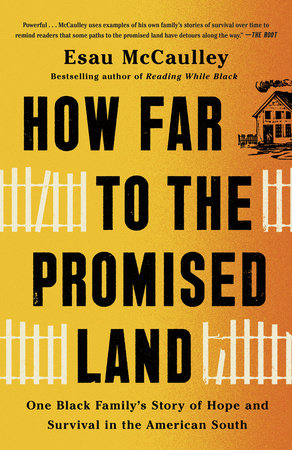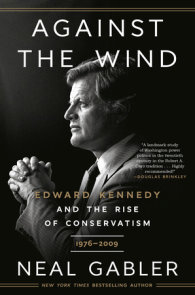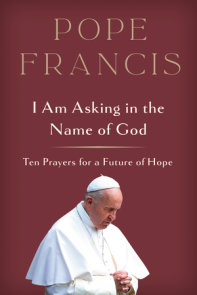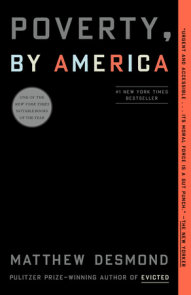READERS GUIDE
- Esau McCaulley begins How Far to the Promised Land with the death of his father and the fact that he had to deliver the eulogy for “the man who has caused us so much pain.” How does this set up the rest of the memoir? Why do you think McCaulley made this choice and what effect does it have on the reader?
- Which part of McCaulley’s family history has stayed with you? Which members of his family did you find most compelling or inspiring?
- When McCaulley defended his sister, her boyfriend knocked him down, hurting both his body and pride. “The problem was my inability to see that at bottom, he and I weren’t combatants. We were fellow prisoners . . . struggling for the remnants of respect left after a society had stripped us of our dignity.” Do you remember the first time you understood systemic racism? Please share.
- At one point, McCaulley is struck with an idea—“a question that wrote itself into my soul, a place that it has never escaped: What do you do when you have everything that you ever wanted, but it is not sufficient to bring you joy?” Reflect on this passage, and how it can apply to your own life.
- McCaulley writes about his grandfather Theodore Bone and the barriers he faced: “My grandfather’s life speaks to the disadvantages of institutional and structural racism in 20th century America—racism that permeated everything from the farm to the classroom to the grocery store.” Where does structural racism manifest itself today? Why do many in positions of power deny its existence? What purpose does this denial serve?
- When learning of a particularly intense piece of family history, McCaulley asks himself: “How does one love and provide in a system designed to make that nearly impossible?” What are your views on inher- ited trauma? As pain is passed down through generations, how does it manifest itself?
- When confronted by a hostile group of guys who ask “Who are you?”, McCaulley responded: “I am a Christian.” Why do you think this answer disarmed the situation?
- In Chapter 10 (Fools Fall in Love), McCaulley writes about meeting, courting, and falling in love with Mandy. Which part of their story resonated with you most?
- Reflect on this passage: “In truth the possibility of goodness in those who do evil is not different in principle than the capability of good people failing us.” Have you experienced any examples of this in your life or your community? Please share.
- Holidays in Black spaces are a time when Black joy and pain come together, especially Thanksgiving. “The promise of good eating brings the whole community together.” Please share your Thanksgiving traditions. Most important, what are your favorite sides, and why?
- GivenMcCaulley‘sfraughtrelationshipwithhisdad,howdoyouthinkbecomingafatherhimself changed him?
- What did you learn reading How Far to the Promised Land—both about the author and about history?




















